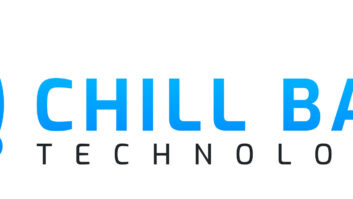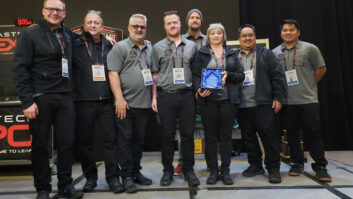LAS VEGAS — The FCC has a strong agenda for action for this year, including arranging for an upcoming auction of new spectrum, planning for how to auction off TV’s VHF spectrum after the transition to digital and developing ways to make broadband services more easily available to consumers, the agency’s chairman Kevin Martin told a packed audience at the Sands Expo Center at yesterday’s International CES Industry Insider session.
Responding to questions comments offered up by Consumer Electronics Association president Gary Shapiro, Martin said, “Everyone would like to see” the TV transition going faster, but, “we are making a lot of progress.” He pointed out that many broadcasters are already transmitting digitally, “and there is a lot of new content,” while Congress is poised to set a firm deadline for the transition.
In the area of broadband services, Martin said the United States is being unfairly compared with the expansion of services available overseas. In this country, he said, we have many sparsely populated areas not yet reached, but when you compare, say, the state of Massachusetts to Japan, two areas of essentially similar population densities, the penetration of broadband “is about the same.” The United States, he said, “is still the largest broadband market” and has the largest number of broadband users. “That’s more important than density issues.”
Touching on two areas of controversy, content decency and copyright protection, Martin said for now the FCC is hands off. He said consumers should be able to have greater control over what kinds of programs enter their homes, “I have always tried to stay away from pushing any one kind of control.” As for the copyright action, the FCC currently has no power in that area, though “Congress is now considering what role the commission should have.” It’s necessary, he said, “to ensure that those investing in content have some way of ensuring a return.”
By the same token, he said, broadcasters must be assured that they will get a return on their investment in digital equipment and be able to stay on the air. One way, Martin explained, may be to promote multicasting, offering pay as well as free channels.
Similarly, Martin stated, while there should be no unnecessary roadblocks put in front of those offering Internet telephone services, it is important that they be regulated to ensure that consumers have the same access to 911 emergency and other public safety services as those using conventional phone services.
In response to a question related to the expansion of spectrum for unlicensed services, Martin pointed out that the FCC’s hands are tied by a Congressional mandate that the freed up TV spectrum be used for commercial purposes. However, he said, the agency will be looking at ways to provide space for upcoming unlicensed wireless technologies.
He also told the audience the FCC expects to have no role in overseeing the planned disbursement of $40 vouchers to consumers buying set-top digital-to-analog TV converters. That, he said, will be the responsibility of the National Telecommunications and Information Administration.













